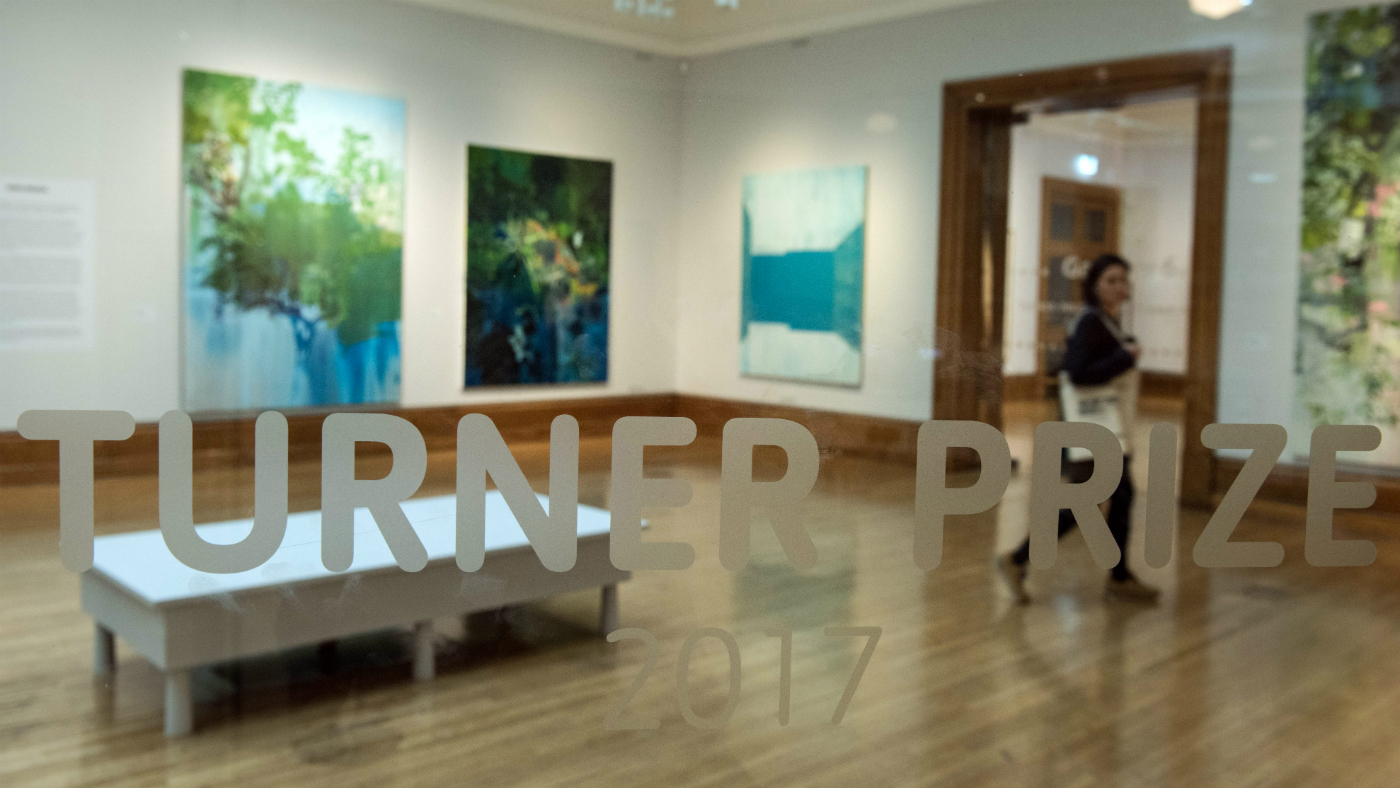Turner Prize 2017: a more diverse, ‘conservative’ show
Is shock-free show backward looking?

A free daily email with the biggest news stories of the day – and the best features from TheWeek.com
You are now subscribed
Your newsletter sign-up was successful
The Turner Prize 2017 shortlist exhibition, which opens in Hull today, has been praised as the most diverse, mature and accessible show of the century, though some may wonder if it's lost its edge.
For many years the shortlist was considered the domain of young mavericks and was notorious for its pickled cows by Damien Hirst and unmade beds by Tracey Emin. But the age restriction that has prevented artists over 50 from entering since 1991 was removed this year, resulting in many entries from older talent.
Hurvin Anderson and Lubaina Himid are the first over-50s to be nominated in decades, while Andrea Buttner and Rosalind Nashashibi are both in their 40s. The BBC reports that Anderson, 52, and Himid, 63, are the bookies’ favourites to win.
The Week
Escape your echo chamber. Get the facts behind the news, plus analysis from multiple perspectives.

Sign up for The Week's Free Newsletters
From our morning news briefing to a weekly Good News Newsletter, get the best of The Week delivered directly to your inbox.
From our morning news briefing to a weekly Good News Newsletter, get the best of The Week delivered directly to your inbox.
Tate Britain director Alex Farquharson, who chairs this year’s jury, says the focus is on celebrating artists who had “previously been neglected by the mainstream”.
Will Gompertz for the BBC says it’s an “unmitigated disaster for the headline writers of Fleet Street” because there’s “no shock, or sensation, no vulgarity or profanity”. The critic argues that the most remarkable thing about this year’s selection is that it’s “unremarkable” and features artists who can “actually paint” if they want to.
A more “conservative” exhibition is the inevitable outcome of removing the age limit, says Gompertz, who adds that “the Turner Prize has grown up”.
Jackie Wullschlager in the Financial Times says the decision “pays off handsomely”. The critic praises the wide-ranging shortlist and the “gracious, thoughtful presentation”, calling it “the most serious, accessible Turner exhibition this century”.
A free daily email with the biggest news stories of the day – and the best features from TheWeek.com
Wullschlager says that the show embraces “a broad spectrum” of art-making including painting, sculptural installation, film and archival work. She praises Rosalind Nashashibi’s work for its “politically engaged poetics”, but says Hurvin Anderson’s “languid, mysterious” paintings “steal the show and deserve the award”.
Adrian Searle in The Guardian however, finds it “an uneven and at times frustrating exhibition”. But Searle agrees that relaxing the upper age limit has been “a good thing”, given that some artists don’t hit their stride until “relatively late” or are overlooked for other reasons.
Searle says that Andrea Buttner’s and Rosalind Nashashibi’s shows are “the best in this year’s prize”, but finds Himid’s recent work “stilted”. He says there are “too many paintings” by Anderson in a selection from the last decade.
Mark Hudson in The Daily Telegraph says the changes have led to less “star making” and “navel gazing” and “more of the themes and ideas that the non-art specialist might actually care about”. The danger however, says the critic, is that the prize has become an award for “past achievement” rather than “work reflecting art today”.
Hudson says the best shortlisted works are from previous decades, which “goes against the spirit of the award”. So for “rigour, consistency and invention in art that is actually being produced now”, he backs Anderson for this year’s Turner Prize.
The Turner Prize exhibition is at the Ferens Gallery, Hull, until 7 January 2018.
-
 Buddhist monks’ US walk for peace
Buddhist monks’ US walk for peaceUnder the Radar Crowds have turned out on the roads from California to Washington and ‘millions are finding hope in their journey’
-
 American universities are losing ground to their foreign counterparts
American universities are losing ground to their foreign counterpartsThe Explainer While Harvard is still near the top, other colleges have slipped
-
 How to navigate dating apps to find ‘the one’
How to navigate dating apps to find ‘the one’The Week Recommends Put an end to endless swiping and make real romantic connections
-
 Home Office worker accused of spiking mistress’s drink with abortion drug
Home Office worker accused of spiking mistress’s drink with abortion drugSpeed Read Darren Burke had failed to convince his girlfriend to terminate pregnancy
-
 In hock to Moscow: exploring Germany’s woeful energy policy
In hock to Moscow: exploring Germany’s woeful energy policySpeed Read Don’t expect Berlin to wean itself off Russian gas any time soon
-
 Were Covid restrictions dropped too soon?
Were Covid restrictions dropped too soon?Speed Read ‘Living with Covid’ is already proving problematic – just look at the travel chaos this week
-
 Inclusive Britain: a new strategy for tackling racism in the UK
Inclusive Britain: a new strategy for tackling racism in the UKSpeed Read Government has revealed action plan setting out 74 steps that ministers will take
-
 Sandy Hook families vs. Remington: a small victory over the gunmakers
Sandy Hook families vs. Remington: a small victory over the gunmakersSpeed Read Last week the families settled a lawsuit for $73m against the manufacturer
-
 Farmers vs. walkers: the battle over ‘Britain’s green and pleasant land’
Farmers vs. walkers: the battle over ‘Britain’s green and pleasant land’Speed Read Updated Countryside Code tells farmers: ‘be nice, say hello, share the space’
-
 Motherhood: why are we putting it off?
Motherhood: why are we putting it off?Speed Read Stats show around 50% of women in England and Wales now don’t have children by 30
-
 Anti-Semitism in America: a case of double standards?
Anti-Semitism in America: a case of double standards?Speed Read Officials were strikingly reluctant to link Texas synagogue attack to anti-Semitism